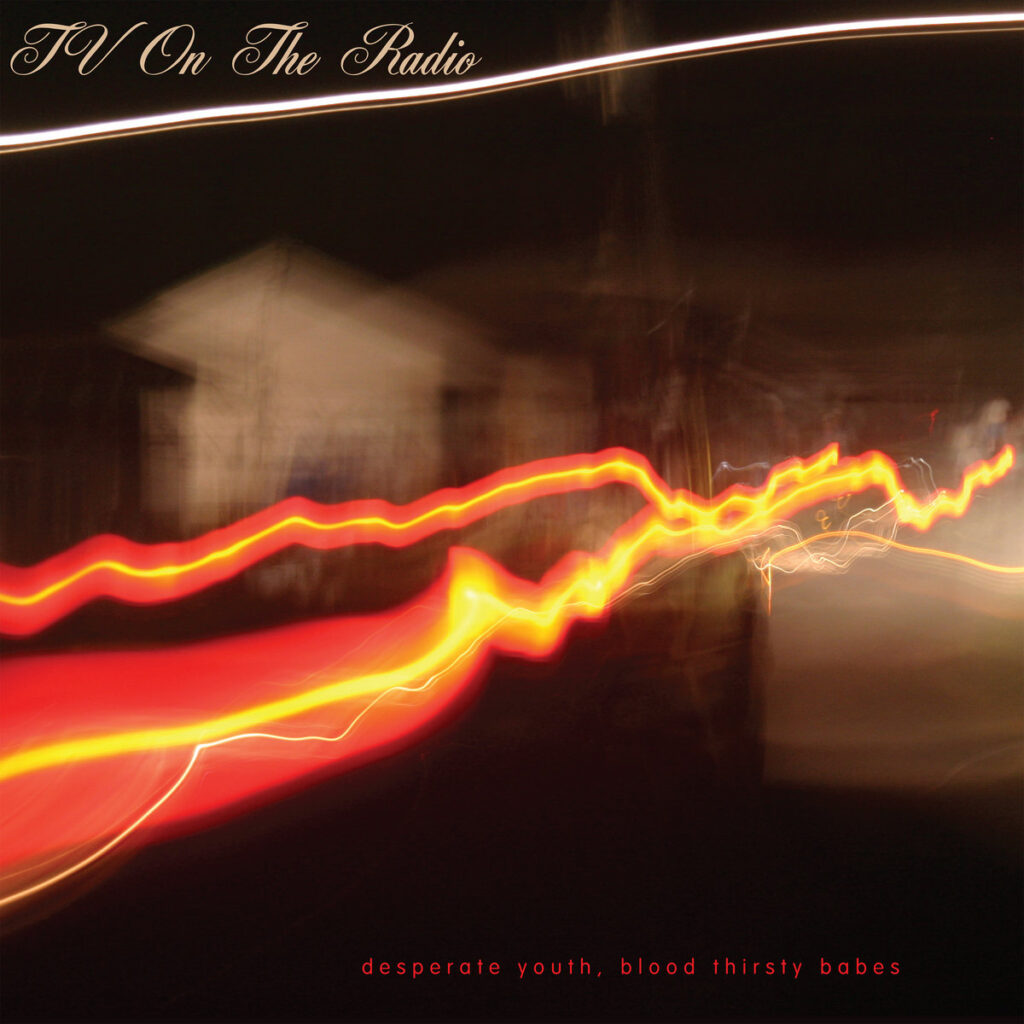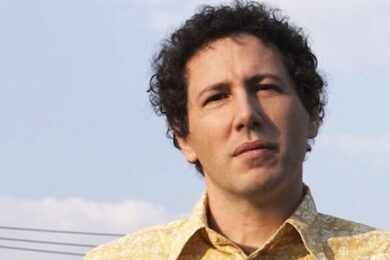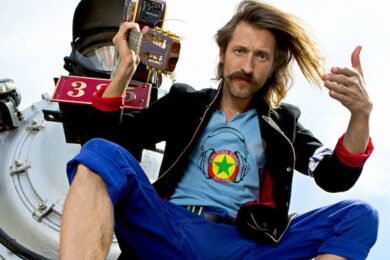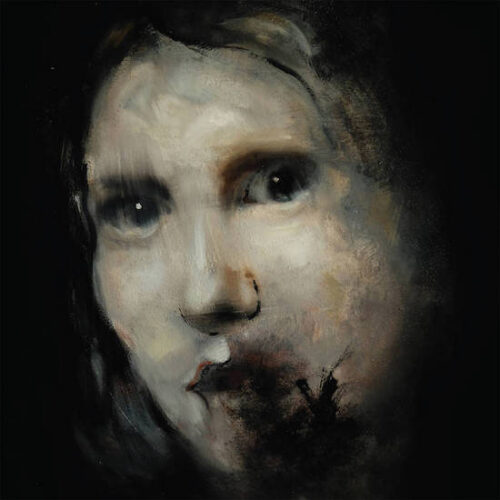If there’s a band that makes me regret the ruination of the good and noble word “hipster,” it’s TV On The Radio. The term used to have a charm and utility. In Nile Rodgers’ autobiography, Le Freak, the author describes both his mother and father as hipsters. He does so without a hint of rancour or parental-effacement, just using the correct term for a pair of bohemians who may have thrown parties where a young Nile would dodge the falling ash from cigarettes hanging from the lips of their friends on the nod, but who also instilled in the future Chic mastermind the importance of looking good, feeling good, and having impeccable taste.
The term “hipster” was vilified by anti-communists, then diluted and gentrified by the kind of systemic cultural racism that came up with “blipster” (the most insane term ever dreamt up by the forces of ahistory and anti-intellectualism), and finally denied by self-hating transplants. I won’t be calling TVOTR “hipsters.” The term is now so irrevocably associated with vacuousness that it’s not a battle I need to fight, especially when TV On The Radio probably wouldn’t appreciate the designation anyway. But there’s only so many ways to say “sophisticated,” “visionary,” and “didn’t look super dumb while smoking,” and it would have saved me some trips to the thesaurus. Because TVOTR had good taste so forceful that it was self-reifying and outwardly validating to whatever the band deigned cool (anybody who tries to tell you that either Pixies or doo-wop were en vogue in 2003 is a liar), and TVOTR had multiple members who looked bananas good in thick glasses, and because TV On The Radio achieved the hep cat platonic ideal of doing VU numbers (in terms of record sales) before eventually changing the world. Well, maybe not the world. But – within that larger, irrevocably spinning thing – they definitely rocked worlds, plural.
‘The Wrong Way’ the first track on Desperate Youth, Blood Thirsty Babes, opens with Antibalas’ Martin Perna playing a truncated blurt of saxophone, as if to announce that New York is indeed alright, followed by a quiet click from not-yet-official TVOTR drummer Jaleel Bunton, before the purr of repetition which TVOTR practically patented kicks in. Then the sax returns, this time as if in an orchestra tuning up before the show begins. Bunton begins the count-off with a patient sweep, sweep, sweep of a hi-hat held in tension just so. Then Kyp Malone starts singing. In his liltingly strange falsetto – angelic, with a touch of Martin the Martian – TV On The Radio’s co-frontman sings “Woke up in a magic n***a movie / With the bright lights pointed at me / As a metaphor / Teachin’ folks the score.” The phrasing serves to underscore the ambivalence Malone expresses a few lines later – now in conjunction with Tunde Adebimpe’s alto tenor and the drums pounding along like a looping coal engine – when the singers, one taking the high road and the other the low, belt out “Did I stand up and testify […] Or did I show off my soft shoe / Maybe teach ’em a boogaloo?”
Whether the ambivalence was exclusively about being expected to teach Pavement fans how to dance within the alt-o-sphere, or whether it was a more general interrogation of doing the soft shoe while the Earth burns, is not my place to say, but the writer Martin Douglas has called ‘The Wrong Way’ “the best song ever written about the complexities of being Black in America surrounding the dawn of the 21st Century.”
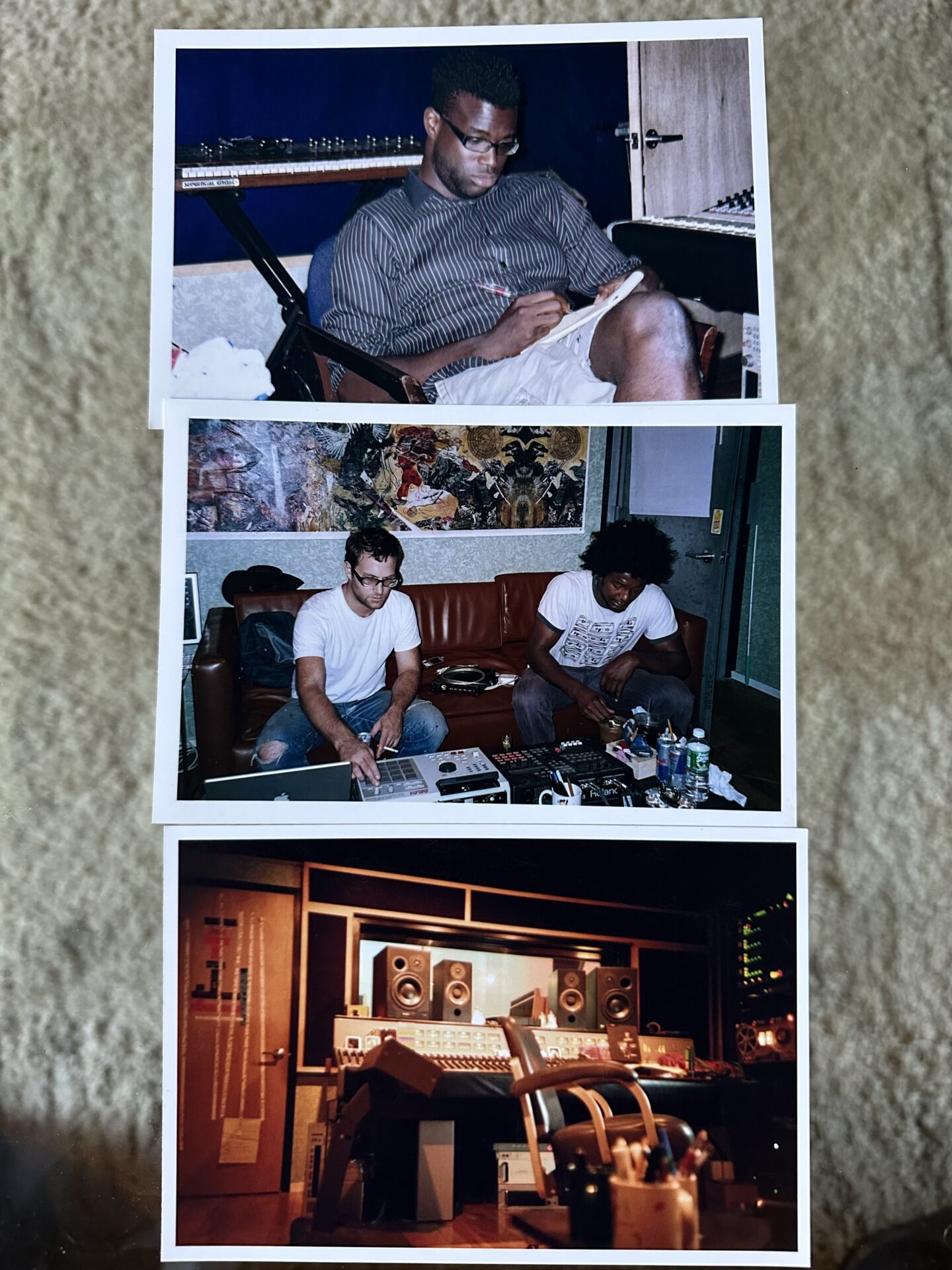
In all this, Malone’s phrasing ambiguates as much as it defines. The singer – who I first met at an afterhours party (thrown by one of the neo-mod bands that time has forgotten) that consisted of about seven dudes, with haircuts ranging from Monkee to rooster, sitting on a couch, passing a single $20 bag of cocaine around while a VHS copy of Pink Floyd Live At Pompeii played in the background – knows his way around bohemia and the world both, and sings as though he might have something to prove, but only to himself. If the listener wants to take all this all as mere entertainment, that’s their problem.
As a band of film aficionados, with a coolly romantic/revolutionary worldview (half French New Wave, half The Battle Of Algiers) to prove it, TV On The Radio excelled at couching both their expressions of heartache and global apocalyptics in lowkey drama. On the reissue of Desperate Youth, Blood Thirsty Babes, the track order is returned to the original vinyl sequencing, so that the opening one-two punch of ‘The Wrong Way’ and ‘Staring At The Sun’ is broken up. The latter is moved to second-to-last of the album proper (before the bonus tracks), so the second track on the album becomes ‘Dreams’. That song features guest vocals from Katrina Ford (of Jaks, Love Live, and Celebration) and Yeah Yeah Yeahs’ Nick Zinner repeating the first note of ‘Maps’ as a sustained siren riff. With Adebimpe taking the reins on lead vocals, the song also begins the chunk of the album where his and Sitek’s affection for cinematic bric-à-brac take a more central position. The TVOTR purr-wave becomes less propulsive, becoming something closer to a white noise string section; creeping to and fro as either a warning for an impending jump scare or a rising action signifier that someone significant is getting their ass dumped.
During the era that TV On The Radio was first regularly operating, the band had little competition. This could be down either to the fact that they made a sound so difficult to replicate that few at the time tried, or it could mean that they made a sound that was never, strictly speaking, in fashion. Both could be true and they both end up at the same place. It’s no disrespect to anyone to say that, in the 2000s, one could do quite well being a shitty Interpol. And you could potentially never have to work again (or at least not until, roughly, 2013) if you were the next shitty Strokes to win the landfill indie lottery. But, like the Yeah Yeah Yeahs and their strange popifying of no wave and Birthday Party blooze-wave, Adebimpe and Co. drew from a span of influence (whether it be film soundtracks, Lungfish, The Flamingos, or deep cut new age) too chaotic to be copped just by watching 24 Hour Party People and flipping through a copy of Please Kill Me. On the other side, the onset AM radio-ification of indie didn’t put TVOTR out of business (the band was plenty accessible) but, while that accessibility prohibited cult status, they were also never vague enough to surpass Animal Collective, dramatic enough to beat out Arcade Fire, or enough like Mike & The Mechanics to get that sweet, sweet Bon Iver dough.
Because, here’s the thing; I know I said I’d avoid the term, and I will, but it’s vital to point out some true facts. By the mid-2000s, the term “hipster” was applied to those aforementioned bands and their fans. But in the same breath, it was applied to wildly popular HBO shows. It was applied to Young Urban Professionals, with the determination made by their buying habits rather than any even claimed association with the actual boho or actual alt. Conversely, despite their accessibility fooling some into misremembering them as being readymade vibes, built for iPod commercials, TV On The Radio were always an animal on the cusp. Like The Walkmen, they had no time for the retro or the go-go . Unlike The Walkmen, Tunde Adebimpe and Dave Sitek never had to announce that nostalgia didn’t hold much interest. They let the layers of looping Yamaha synth lines, funkified Big Black bass, and post-krautrock drum breaks do the talking.
None of this was, if it matters, necessarily capital “R” radical, whatever that might mean. Like I said, TVOTR was never what you could call a tough listen. While a track like ‘Don’t Love You’ might be novel in the way it combines strident kiss-off with an abridged world history of church keyboard music, it still goes down as easy as ‘Good Times Bad Times’. And though the band’s anti-Zionism wasn’t exactly typical of interviews you’d read in Pitchfork or Vice at the time , on record TVOTR’s politics were usually conveyed via either those wily metaphors which Kyp Malone was so distrustful of, or through the classically rebel rocker use of an indeterminate “you” – which could be aimed at the military industrial complex, or just as easily be read as being directed at such beneficiaries of empire’s spoils as the listener, or even the singer of the song. After all, as is the case now, in the aughts, America’s #1 domestic product was complicity.
So, if not radical, and not pandering-ly fashionable, what? The answer is “hip.” Just… hip, like Nile Rodgers, Nile Rodgers’ daddy, and Nile Rodgers’ realised dream of Chic being “the Black Roxy Music.” HIP, all caps and all italics, like bebop, Teenage Jesus And The Jerks, and foreign movies with either too much or not enough talking. Boho city shit, and unashamedly so; the kind that inevitably leads to gentrification, which sucks but, in the brief moment beforehand, is beautiful.
Unlike The Velvet Underground, “TV On The Radio were important goddamnit” is an ongoing project. It’s only in the last few years that the band’s influence has been acknowledged. The understanding that they loomed large for afro-punk came early but their role as the Sound Of Indie To Come has been a harder sell. The former might have something to do with the latter. TVOTR’s influence is often misapplied, with that misapplication all too often being based on factors other than a shared appreciation for the works of Brian Eno. Meaning: if you compare the first Young Fathers album to TVOTR, fine. But if you compare the last Young Fathers album – or, for that matter, any album by Algiers – to TVOTR… some self-interrogation might be in order. At the same time, a failure to hear the echo of TV On The Radio in all the synth emotionalism of contemporary indie, or pop acts like The Weeknd or Tame Impala, is equally egregious.
Hell, I’d claim an influence on contemporary shoegaze if contemporary shoegaze was better.
Desperate Youth, Blood Thirsty Babes isn’t considered to be TVOTR’s best album, because it probably isn’t. That title canonically goes to either critical fave Return To Cookie Mountain or popular fave Dear Science. Made as the full band (with the late, great Gerard Smith) at the height of their inspiration, an argument could be made for either album (even if I’m partial to Seeds, the band’s 2014 LP which sounds like if the Four Tops made a new romantic album). But if Desperate Youth, Blood Thirsty Babes isn’t TVOTR’s masterpiece, that’s an indication of the qualities the band would go on to strengthen, not the album itself’s weakness. Desperate Youth, Blood Thirsty Babes is easily one of the best albums of 2004, and it’s one of the best of the 2000s barely breaking a sweat. Even as a formative work, with all the dub and gospel and post punk sinewing around a skeleton of analog synths, the alchemy for a free and future blues was glaring. With the exception of their other records (and the bar Jaleel Bunton’s brother Kereem opened in Bushwick) it might be one of the last times NYC was hip, in any way that might matter.
The 20th Anniversary reissue of Desperate Youth, Blood Thirsty Babes is out now via Touch & Go Records

